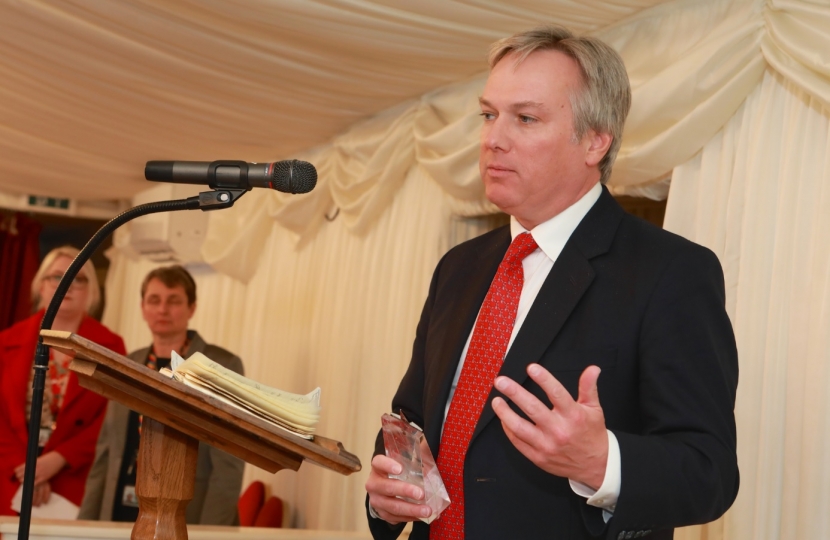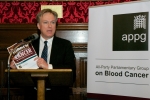
Each September marks Blood Cancer Awareness Month. While this is always an important moment to raise awareness of the condition, it is difficult to think of a year when such a focus was more needed.
Blood cancer differs from other forms of cancer as it affects the blood cells. There are over 200,000 people in the UK with more than 100 different types of blood cancer, which include leukaemia, lymphoma and myeloma. All of these people were asked to shield from COVID-19 from March until July, with an effect on them and their families which cannot be underestimated.
Following the sudden loss of a close family member to blood cancer, in 2016 I set up and continue to chair the All-Party Parliamentary Group (APPG) on Blood Cancer.
One of the key issues the Group has sought to raise is to highlight the symptoms of blood cancer, and the importance of early diagnosis. A consequence of the pandemic has been people not seeing their GP, potentially ignoring symptoms which may have been those of blood cancer.
The most common symptoms include unexplained weight loss, unexplained bruising or bleeding, lumps or swellings, drenching night sweats and persistent, recurrent or severe infections.
Of course, most people with these symptoms will not have blood cancer. However, if you have any of these symptoms you should book an appointment with your GP.
It is estimated that between March and July, the NHS would expect around 13,000 people to be diagnosed with the condition.
Around a third of people with blood cancer end up seeing their GP three or more times before they are diagnosed. This is more than any other type of common cancer and highlights the scale of the challenge. Our GPs need greater support to help them identify blood cancer symptoms, particularly when they are found in what can seem like an unrelated health issue.
Government is committed to ensure that 55,000 more people each year will survive their cancer for five years or more, and 75 per cent of people with cancer will be diagnosed at an early stage (stage one or two) by 2028.
This is a good start, however in recognition of the fact that it is difficult, and in some cases, impossible to stage blood cancers, we need to see a commitment to reduce the number of people diagnosed with blood cancer via an emergency to the rate for other common cancers; from 28 per cent to 19 per cent.
I want to assure anyone in Crawley who has this condition that the Blood Cancer APPG will continue to stand up for you in Parliament.
Henry Smith MP



